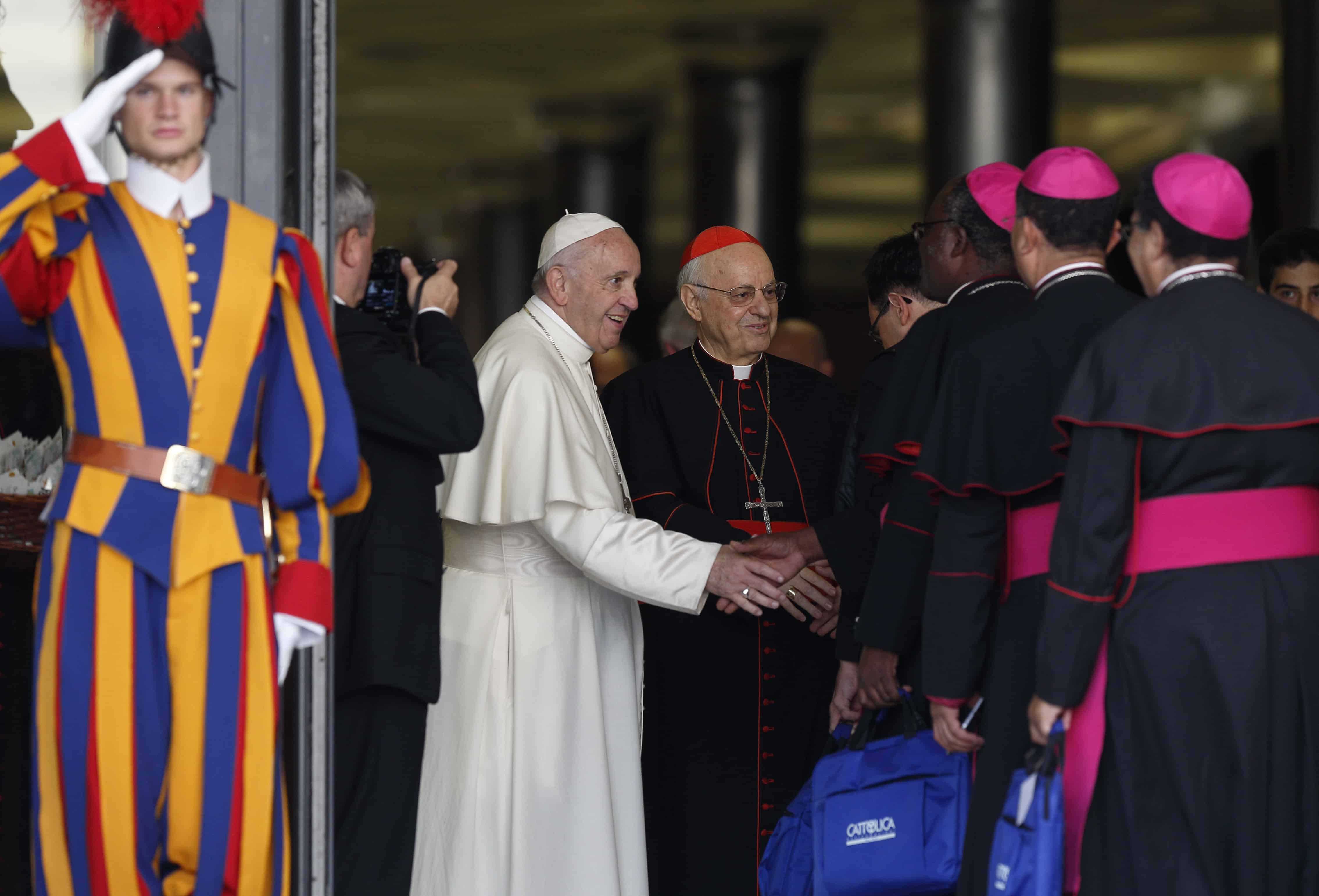Today TJP offers a round-up of insights from interviews with Synod fathers, auditors and experts in Rome on critical issues of the Synod.
*****
Synodality & Women in the Church
Early questions leading into the Synod concerned the new constitution for synods released by Pope Francis in September. While the constitution affirms the pope’s ability to nominate members of the Synod and the potential inclusion of parts of the final synod document in the Magisterium, early analysis of the text did not suggest any radical changes to the synod process.
The more controversial story about synodality has been its membership, particularly why women cannot have voting rights although non-ordained religious brothers do. As Massimo Faggioli told TJP, “Once you have broken the taboo that non-bishops are full members, is very hard to explain why being a male, non-ordained male member of the Church gives you a voice in synodality and why being a female member gives you no right of representation.”
Pope Francis’ broad notion of synodality gives some hope that Synod membership will be expanded. “In future synods – I will not say in the very next synod, but in future synods – we will probably see a change in who votes,” U.S. Sister Sally M. Hodgdon, superior general of the Sisters of St. Joseph of Chambery, told CNS.
The Synod of Bishops was instituted by Pope Paul VI to cultivate episcopal collegiality, Faggioli noted, as “a body of bishops helping the pope governing the Catholic Church.” As Pope Francis initiates synodal processes throughout the Church, questions remain about how the Synod of Bishops can continue to serve the Church as a distinctly episcopal form of collegiality. An answer to that question might require recognizing that synodality is bigger than the Synod of Bishops, and thus will require institutional changes beyond the Synod.
Listening & Teaching
One of the more subtle debates at the Synod concerns listening and teaching. Pope Francis called for “a Church that really listens”, and many young auditors said that they felt heard and listen to, as Brazilian auditor Lucas Galhardo told TJP.
Others have emphasized that the Church must teach young people. Cardinal Peter Turkson called the Church a “manual” for life at a Synod press conference. Cardinal Marc Ouellet noted that the Church can teach young people about “discovering “Jesus’ trinitarian identity” which he found “not quite explicit” in the synod’s working document,” especially with regard to the sacraments. “If we want young people to make the choice of following Jesus,” he said, “they must learn who Jesus is: the beloved who comes to meet us to make us discover the Father through him, in the communion of the Holy Spirit.”
Others emphasized the need to balance teaching and listening. Bishop Robert Barron, a Synod father familiar to U.S. Catholics for his Word on Fire ministry, told TJP that listening and teaching are both important, and that he was concerned that Synod rhetoric had focused on listening to the exclusion of teaching. The Church is looking for the “proper balance” between the two, he said, and “It will teach more effectively the more it listens. ”
This disagreement has been a question since Vatican II, especially in Gaudium et spes, when it was asked broadly of the Church’s engagement with the modern world. It is not likely to be resolved anytime soon.
Sexuality & Culture
Sexuality is the controversy that wasn’t at the Synod. While an early story out of the Synod involved the contested inclusion of “LGBTQ” in the Instrumentum Laboris, subsequently sexuality has not been a prominent theme at the Synod.
While issues around sexuality have come up at the Synod, as America extensively documented, Synod participants have been cautious in speaking about what might come out of the Synod about it. At a press briefing on 18 October, for instance, Matteo Zuppi, archbishop of Bologna, emphasized that the question was a “pastoral” one that depended upon the many context in which the Church finds itself.
Cardinal Kevin Farrell told TJP that the theme of bridge-building, one popularized by Father James Martin, SJ, has had an impact on the Synod, but he did not know if the final synod document would use the term “LGBTQ,” as Martin himself advocated. “In many ways it’s very difficult to put certain expressions that may mean one thing in the English-speaking world, but we’re not writing a document for the United States,” Cardinal Farrell said.
Cardinal Blase Cupich spoke at a 20 October press briefing of a “divine pedagogy” on LGBTQ issues, using the language of Amoris Laetitia. The distinct form of that divine pedagogy in the life of the Church remains to be seen.
***
Looking Ahead
As we enter the final days of the Synod, three questions remain unanswered: What will the final Synod document say?Will the final document be the last word on the Synod, or will Pope Francis write his own apostolic exhortation? How will Pope Francis continue to implement his vision for a more synodal Church, and what role will the Synod of Bishops play in it?


